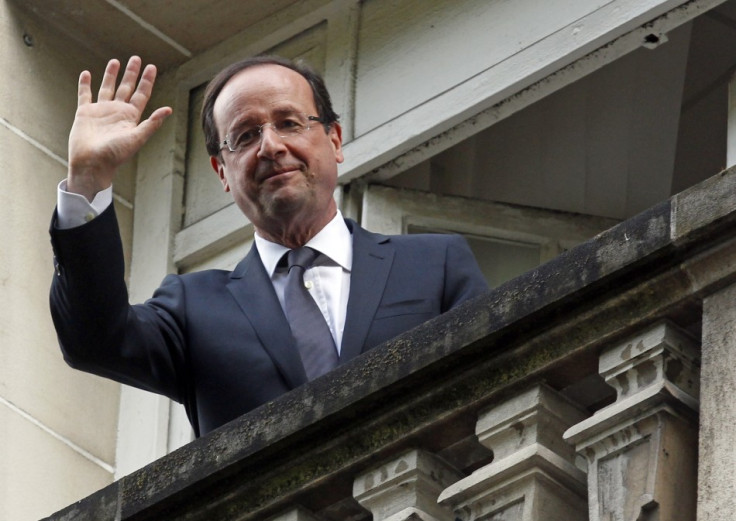French Vote In Parliamentary Elections

The first round of voting in French parliamentary elections started Sunday. All 577 seats in the Chamber of Deputies are at stake, including those from overseas territories.
According to the polls, the left is likely to secure a comfortable lead if not a thumping victory in the parliamentary election.
If President Francois Hollande's Socialist party wins the lower house, it will allow him to implement his promised tax-the-rich policies.
"I will only be able to bring about change, the change that the French have asked me to bring about, if I have a majority in the National Assembly," the AFP quoted the president saying before the elections.
The elections will be followed by runoffs for the undecided seats a week a later. The house will sit for the next five years.
Reports suggest the voters turnout will be lower than in the presidential election held in April and May, when Hollande ousted Nicolas Sarkozy.
According to the figures released by the Interior Ministry quoted by the Associated Press, the midday turnout was 21.06 percent, which is slightly below the 22.56 percent of the last parliamentary elections in 2007.
Around 64,000 polling stations are in place. Voting ends at 8 p.m. (1800 GMT, 2 p.m. EDT), when early returns should give an indication of the size of what polls predict will be a victory for the Socialists and their allies.
First round of results is likely to be announced by Sunday evening after the voting. If no candidate secures more than 50 percent in the first round, runoff will take place for the seats which is mostly likely the scenario for a lot of seats.
This election will be a test for Marine Le Pen's right-wing National Front which secured almost of 20 percent of the votes in the first round of the presidential election. The party has not held parliamentary seats in decades.
Among high-profile individual races, Le Pen and hardline leftist Jean-Luc Melenchon, arch-foes who also ran in the presidential election, went head to head in the northern Calais region.
Police said they were called in to settle an argument at one voting station in that constituency over the presence of a National Front official, Reuters reported.
Segolene Royal, who has four children with Hollande and ran for president herself against Sarkozy in 2007, hoped to win a seat in the western seaside town of La Rochelle, where rivals include a rebel leftist the Socialist Party dropped to make room for her.
Barring an upset, the main question for Hollande is whether the Socialists will win control of the National Assembly on their own, or have to depend on the Greens and more radical left-wingers to secure the minimum 289 seats needed.
Polls published in the days before the vote showed the Socialist Party tied with Sarkozy's centre-right UMP party, with about a third each of the total vote. But the polls put the Socialists on course to take as much as 46 percent of the total vote with the help of the Greens, their first preference as coalition partners, and the Left Front, a grouping that includes communists and other hardliners.
According to an Ipsos poll, vote percentages for the Socialists, the Green and the Left Front could translate into a combined 292 to 346 seats. An OpinionWay poll showed a range of results that would give the Socialists more than 289 seats either alone or with the support of the Greens.
The left already controls the Senate.
© Copyright IBTimes 2025. All rights reserved.






















